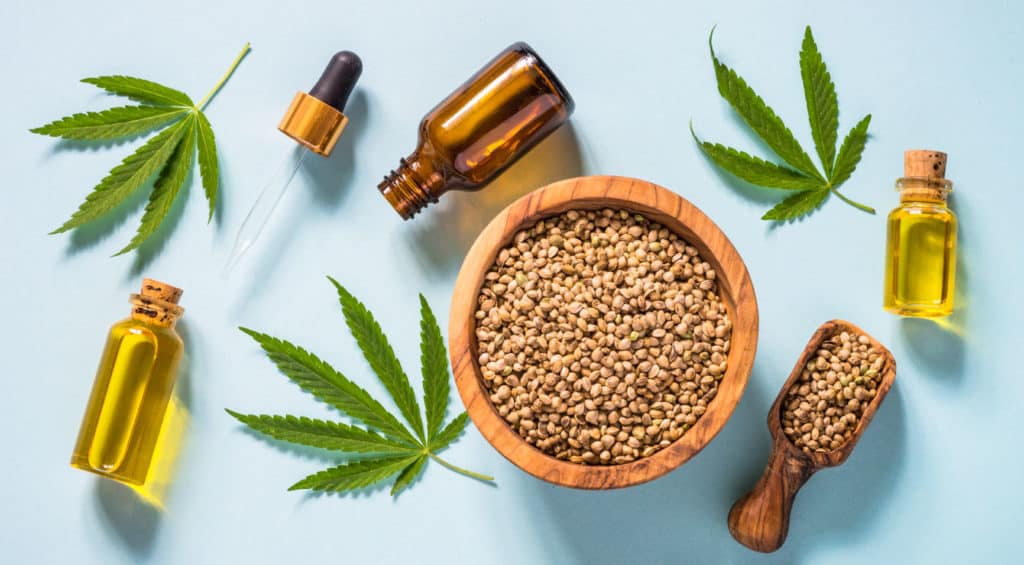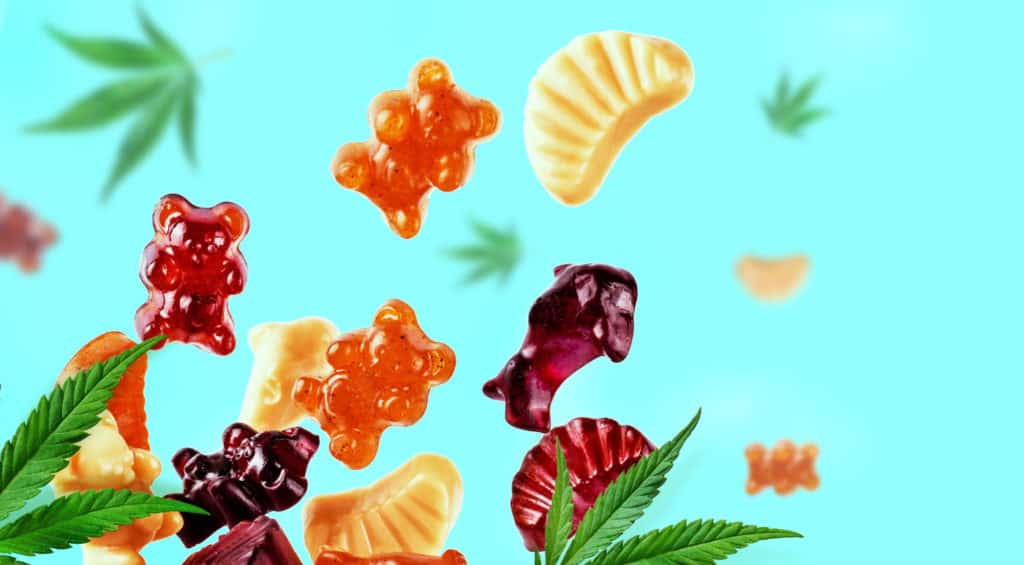Learning how to store your CBD will go a long way in helping you get your money’s worth. It will also ensure that you don’t accidentally consume CBD that’s gone bad or lost its potency.
We’ve all been surprised at one time or another buy the price tags attached to certain CBD products. So to make sure that you get the most out of these products, we’ve brought you this guide to storing it.
First, we’re going to briefly discuss CBD, then we’ll talk about different kinds of CBD products, and finally wrap up with how to properly store CBD oil!
If you didn’t know that CBD could go bad, or that it could lose its potency, this article is for you. Continue reading for our speedy guide on how to keep your CBD products fresh and functional, because there’s nothing worse than going to break out your expensive bottle of CBD oil only to find that its become congealed or that there’s some new colors you don’t recognize. Gross!
What You Need to Know First About CBD

CBD is short for cannabidiol, a chemical derived from the Cannabis sativa plant. Many people mistake CBD as just a watered-down version of marijuana, but these are two different products designed for different purposes. You’ve likely heard about CBD recently and watched as CBD shops have sprung up every few blocks.
If you’re sitting scratching your head and wondering why this suddenly occurred, here’s why: In 2018, a piece of legislation was passed called the Farm Bill that legalized the sale and distribution of industrial hemp. Industrial hemp is the plant from which CBD, among other products such as cloth and rope, is derived.
While marijuana and industrial hemp are both derived from the Cannabis sativa plant, they differ in the amount of THC, or Delta-9-tetrahydrocannabinol, the chemical responsible for the “high” felt when using marijuana. Industrial hemp is required to contain less than 0.5% THC. So you might be saying to yourself, “OK, I know CBD products have menial amounts of THC, but what is up with all the different designations such as broad spectrum, full spectrum, and CBD isolate?”
Classifications and Legality of CBD
Frankly, we are glad you’re taking the time to ask these important questions, so let us briefly explain what characterizes each of these products. Let’s start at full-spectrum CBD products, which contain cannabidiol, other cannabinoids, and less than 0.3% THC. Broad-spectrum CBD products are further refined so that the THC is eliminated from the formula but cannabidiol and the other endocannabinoids are left intact.
If you choose a CBD isolate product then you’ll be getting a product that is designed to have nothing but cannabidiol in the formula. So qhich kind of CBD product should you choose?
This depends on a few factors including whether or not your job requires routine randomized drug testing. If your employer does routine random testing then you should check with your company policy about CBD, and you may want to choose a broad-spectrum CBD product or a CBD isolate to minimize the chances you come back positive for THC (and risk losing your job).
Many people believe that full-spectrum products work the best for their concerns, and there is even some evidence to back up the claims. The idea that full-spectrum CBD products work better than other types of CBD products comes down to the entourage effect. The entourage effect is a phenomenon that emerges when chemicals enhance the effect of other chemicals in the formula. Basically, it means that leaving in the other endocannabinoids enhances the effect of cannabidiol.
Storing CBD Oil

Since CBD oil is one of the most likely CBD products you may purchase, let’s talk a little bit about how to store it. It’s pretty simple, but you should keep in mind that some manufacturers may suggest specific storage recommendations for their products. These instructions should take precedence over the general recommendations made here.
One of the best places you should store your CBD oil is in a cool dark space—such as a pantry or cabinet in your house.
You don’t have to worry about refrigerating the CBD, although if you like the taste of the oil better after being refrigerated then go ahead; cooling the oil to the temps found in a refrigerator will not hurt the oil or make it less effective. Like most supplements, you’ll want to avoid direct sunlight as much as possible as well as extreme changes in temperature, both of which can cause the product to lose its efficacy more quickly.
So if you want to store CBD keep your oil fresh for longer be sure to avoid these things:
- Heat
- Sunlight
- Extreme Cold
Also make sure that if there’s a dropper in your CBD oil, that it doesn’t become contaminated. If the dropper touches your mouth or a foreign surface, be sure to clean it thoroughly with warm water and soap. Then rinse thoroughly with warm water to remove any trace of soap. Allowing contaminates into your CBD oil will be the quickest way to ruin it.
Other Types of CBD Products Worth Looking Into

With the legalization of industrial hemp came the explosion of the CBD market. Manufacturers are putting CBD in all kinds of different products, and one of the most common CBD products you’ll hear about is CBD oil in which the compound is extracted and put into a carrier oil such as coconut oil.
But CBD oils are just the tip of the iceberg when it comes to CBD products and, now that you know how to store CBD oil, let’s look into other forms of CBD you might like to check out.
If you’re getting bored with the oil or can’t find a flavor you like (or you can’t stand the earthly taste of unflavored CBD oil), then you may want to choose a CBD gummy product, brownies, or other sweet treats loaded with CBD and other endocannabinoids. CBD gummies commonly have sugar or artificial sweeteners added to the product that can mask the natural CBD taste to make it more palatable.
Topical CBD products are another option that you may want to consider, especially if you’re using CBD products for muscle pain and joint problems. Many companies make CBD creams that can be worked into the skin or even rolled on the affected area. Most of these CBD products are stored similarly to CBD oil.
How to Store CBD Isolates, Topicals, and Gummies
To keep any CBD product safe and fresh, you’ll want to hold true to the three major rules:
- Avoid direct sunlight
- Avoid heat
- Avoid contamination
This remains true for virtually any CBD product, regardless of its type. However, some CBD forms will provide more leeway than others. For instance, CBD isolate or crystal which looks like a white powder, is CBD in its raw form and will be most sensitive to any of the above factors.
If you own CBD isolate, your best chance is to store it somewhere really cool, dark, and dry. Some choose their refrigerator for this reason, but make sure that it doesn’t get too cold.
CBD topical creams will be similarly finicky when storing. Because the cream formula itself has a shelf life, too. So you’ll need to read the product’s directions carefully in order to learn the best way to store it. But chances are that you’ll be served well by storing in a medicine cabinet, or a similarly cool and dry place.
CBD gummies are the easiest CBD products to store. They’re more resistant to environmental factors, but will still need to be kept in a sterile environment. Additionally, make sure the gummies’ storage container isn’t completely translucent, otherwise sunlight will penetrate and slowly degrade the potency.
